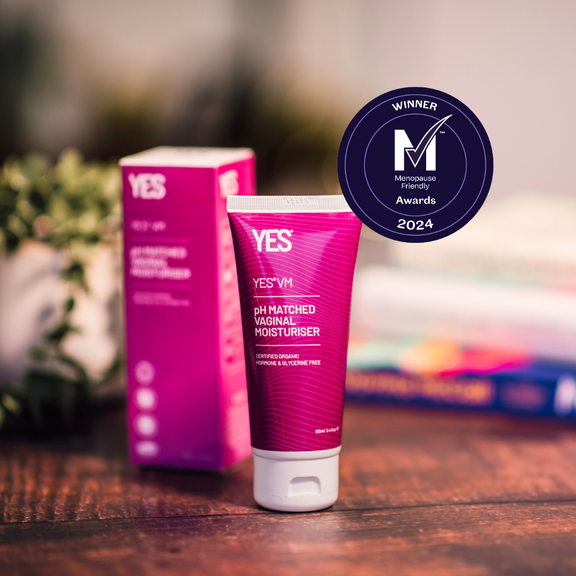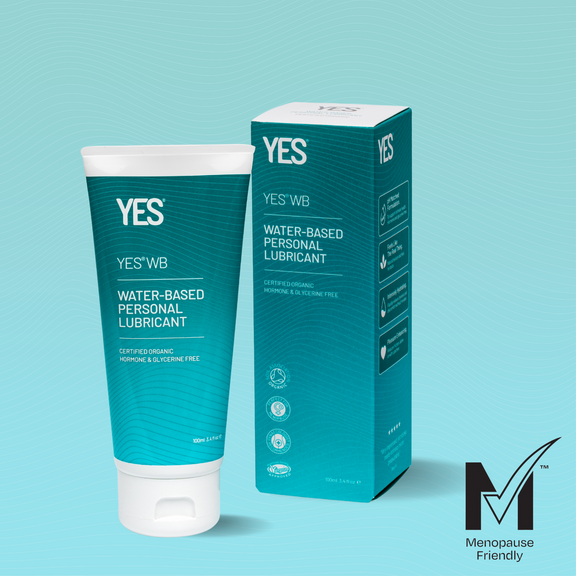Authenticity in the Menopause Movement; What’s Changed in 2024?
Menopause: a topic once whispered behind closed doors is now getting the attention it deserves, with more openness, inclusivity, and real change happening in 2024 than ever before. This growing shift is thanks to greater media coverage, celebrity advocacy, legislative breakthroughs, and public campaigns all aimed at normalising menopause as a natural part of life.
Despite phenomenal progress, the conversation around menopause is complex. With many women still reporting feeling invisible, devalued, and confused about what help is available. Campaigns like the Menopause Workplace Pledge, have been urging businesses to create supportive environments for women going through menopause. And it's working—over 3,100 employers, including big names like the BBC, and Royal Mail, have signed up. There are also initiatives like Menopause Café, offering relaxed spaces for women to chat openly about their experiences.
In August, we launched the YES® Vaginal Dryness Survey to discover more about one of the most experienced and distressing symptoms of menopause. We found that 75% of respondents were now comfortable talking to their GP about vaginal dryness (yay!) and 95% were confidently aware of what vaginal dryness is. Still, a concerning 7% felt there was no way they could talk about it to anyone. Clearly there are still barriers preventing women from accessing support.

The Workplace Conversation
Menopause isn’t just a personal issue—it’s a workplace one, too. The UK Parliament's Women and Equalities Committee recently revealed that menopause symptoms, like hot flushes, mood swings, and fatigue, are hitting women's careers hard. Many women are taking sick leave or even considering early retirement due to lack of support at work. In fact, businesses can now be sued for disability discrimination if they don’t make ‘reasonable adjustments’ for menopausal women.
In response, many employers are taking action. Some companies have introduced menopause-specific workplace policies, offering flexible work arrangements, training for managers, and more open discussions around symptoms.
Meno-washing or Menopositivity?
Alongside social and workplace reforms, menopause continues to reshape the way we shop. Women in their 40s and 50s, often referred to as the "menopausal market," are a growing force in the beauty and wellness industry. From hormone-balancing skincare to cooling clothes designed for hot flushes, companies are recognising the need for products that cater to menopausal women.
GEN M’s ‘MTick’ is gaining popularity, with more and more over-the-counter products qualifying as ‘menopause-friendly’ (more on Gen M here). In February 2024, supermarket giant Tesco launched menopause aisles in 200 of their stores with Morrisons following suit in August.
However, is the commercialisation of menopause turning a natural life transition into a new avenue for profit? Some say marketing aimed at menopausal women reinforces the pressure to look young or "fix" the signs of aging. Others are questioning the authenticity of menopause specific products and even private menopause practices which have sprung up across the country.
‘Menowashing’ is a term coined to describe aggressive marketing of products aimed at relieving menopause symptoms without proper scientific or medical backing. Here at YES®, we’re dedicated to facilitating authentic conversations around menopause and menopause symptoms. Our products have been proven to relieve the symptoms of vaginal dryness and vaginal atrophy, which commonly affect women during menopause. YES® VM is a Class IIa medical device, available on UK prescription. Read more about the significance of certified medical devices, and what it means for menopause products here.
Media Attitudes: From Silence to Spotlight
If you’ve turned on the telly or scrolled through social media lately, you’ve probably noticed menopause getting more airtime than ever before. Celebs like Davina McCall and Louise Minchin continue to bring attention to menopause. McCall’s 2021 documentary on menopause was a watershed moment, but in 2024, we saw further follow-ups and increased focus from other media outlets. The BBC and Channel 4 have launched several programmes specifically addressing menopause, including discussions about hormone replacement therapy (HRT), workplace discrimination, and mental health.
Louise Minchin, former BBC presenter, has also been candid about her own struggles with menopause, using her platform to advocate for better understanding and support.
Carol Vorderman has been vocal about change, advocating for easier access to HRT and better workplace support.
The changes we’ve seen so far this year—from celebrity advocacy to workplace reforms and growing consumer awareness—shows that the menopause conversation is still gaining momentum. But with shoppers becoming more wary of the impact of menowashing, we’re hoping 2025 brings a new wave of authenticity to the menopause consumer landscape.






